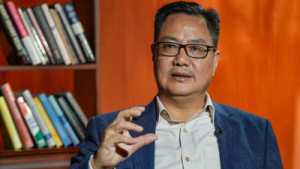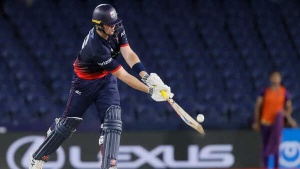Dengue fever, a viral infection transmitted by the Aedes aegypti mosquito, poses a significant public health challenge, especially in India. The mosquito-borne illness can manifest in varying degrees of severity, from mild discomfort to life-threatening complications, particularly for individuals with weakened immune systems. With India accounting for a substantial portion of the estimated 100–400 million dengue infections worldwide, the development of an effective vaccine is of paramount importance.

Fortunately, there is encouraging news on the horizon. India's first dengue vaccine is nearing the final stages of testing, with Phase 3 trial enrollment nearing completion. This groundbreaking development offers a beacon of hope in the fight against this pervasive disease.
Dengue fever is characterized by a range of debilitating symptoms, including high fever, severe headaches, intense joint and muscle pain, and, in some instances, a precipitous drop in blood platelet count. Severe cases can lead to hemorrhage, organ failure, and even death. Children and the elderly are particularly vulnerable to the most severe consequences of the infection.
The quest for a safe and effective dengue vaccine has been a long and arduous one. A major hurdle lies in the fact that there are four distinct serotypes of the dengue virus. An ideal vaccine must provide protection against all four to confer comprehensive immunity. While some vaccines have been developed in other countries, they have often yielded inconsistent results and have not been widely adopted.
The Serum Institute of India (SII) is at the forefront of developing India's first dengue vaccine, named "TetraVax-DV." This vaccine is engineered to provide protection against all four dengue virus serotypes. TetraVax-DV employs a non-live, weakened form of the virus to stimulate the body's immune system, teaching it to recognize and combat future dengue infections without causing the disease itself.
Before any vaccine can be approved for widespread use, it must undergo a series of rigorous clinical trials:
Phase 3 trials are the most critical phase, as they provide crucial data on the vaccine's ability to prevent dengue fever in a real-world setting.
Phase 3 trials for India's dengue vaccine commenced in 2023 and are being conducted at over 20 sites across the country, encompassing both urban and rural areas. The trials aim to enroll more than 10,000 volunteers, including children and adults from diverse backgrounds. Enrollment is nearly complete, and preliminary results are promising.

The next steps in the vaccine development process involve:
India bears a significant burden of dengue fever cases. A safe and effective vaccine holds the potential to:
Regardless of vaccine availability, it remains crucial to continue practicing preventive measures against dengue fever, such as using mosquito repellents, wearing protective clothing, eliminating mosquito breeding grounds by covering drains and removing standing water.
The Indian Council of Medical Research (ICMR) and Panacea Biotec.
Newer articles
Older articles
 Smith Eyes Grenada Test Return After Injury Recovery
Smith Eyes Grenada Test Return After Injury Recovery
 Google Maps Boosts Navigation Precision with Fused Orientation Provider Update
Google Maps Boosts Navigation Precision with Fused Orientation Provider Update
 Earth Sciences Minister Rijiju Expresses Frustration Over Atos Supercomputer Delay, Jeopardizing Weather Forecast Upgrades
Earth Sciences Minister Rijiju Expresses Frustration Over Atos Supercomputer Delay, Jeopardizing Weather Forecast Upgrades
 Washington Freedom Snatch Last-Ball Win Over Knight Riders in MLC Thriller; Playoff Hopes Soar
Washington Freedom Snatch Last-Ball Win Over Knight Riders in MLC Thriller; Playoff Hopes Soar
 East Africa Rift: Mantle Upwelling Drives Birth of New Ocean, Study Finds
East Africa Rift: Mantle Upwelling Drives Birth of New Ocean, Study Finds
 Prasidh Krishna Vows to Sharpen Bowling After Costly Leeds Performance
Prasidh Krishna Vows to Sharpen Bowling After Costly Leeds Performance
 Colon Cancer: Don't Ignore These 5 Subtle Warning Signs
Colon Cancer: Don't Ignore These 5 Subtle Warning Signs
 Gavaskar Urges India to Replace Thakur with Yadav for Second Test Against England
Gavaskar Urges India to Replace Thakur with Yadav for Second Test Against England
 Rishabh Pant's Unconventional Batting Style Is Revolutionizing Cricket, Says Greg Chappell
Rishabh Pant's Unconventional Batting Style Is Revolutionizing Cricket, Says Greg Chappell
 Vitamin B12 Deficiency: Cardiologist Explains Symptoms, Sources, and Why You're Always Tired
Vitamin B12 Deficiency: Cardiologist Explains Symptoms, Sources, and Why You're Always Tired